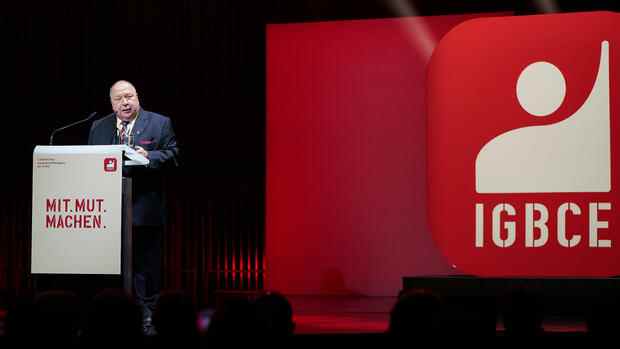“Money is slipping through the fingers of employees more quickly every day.”
(Photo: imago images/Future Image)
The collective bargaining round for around 580,000 employees in the chemical-pharmaceutical industry, which was adjourned in April, is picking up speed again. On Wednesday, the Federal Collective Bargaining Commission of the Mining, Chemical and Energy Industrial Union (IG BCE) reiterated its call for a sustainable increase in purchasing power, which it had already decided in February, but still did not give a specific percentage.
“Our decision is more relevant today than ever,” said IG-BCE negotiator Ralf Sikorski. “Money is slipping through employees’ fingers faster every day, while most of their employers continue to earn well.”
On the other hand, the employers’ association BAVC declared that the company was facing an avalanche of costs for gas and electricity, and the first companies were already reducing or shutting down systems. The consequences of the Ukraine war are “so dramatic that a normal collective bargaining round is unthinkable,” said BAVC negotiator Hans Oberschulte.
It will continue on October 17th and 18th
Both sides had already started negotiations at the federal level in March, but after two rounds in April, in view of the economic uncertainties, agreed to adjourn them until October. For the time in between, the employees received a “bridging payment” of a uniform amount of 1,400 euros. Distressed companies were able to reduce this amount to 1,000 euros, of which 149 out of 1,900 companies made use, according to IG-BCE information.
Top jobs of the day
Find the best jobs now and
be notified by email.
Negotiations are now to continue on October 17th and 18th in Wiesbaden. Of course, the situation has deteriorated significantly in recent months, said Sikorski. “But that applies above all to our people.” The exploding energy prices not only affect the poor, but the broad masses – the chemical laboratory assistant as well as the plant operator or the pharmaceutical officer.
>> Also read here: Tariff employees are threatened with a real wage drop of 3.6 percent in 2022
The union’s negotiator said it was an empty argument that sustained wage increases would put an additional burden on companies. “With personnel costs currently accounting for 12.3 percent of the total costs, even higher wage increases are not an additional price driver.” Sikorski is thus indicating that IG BCE is unlikely to be satisfied with one-off payments or a pay increase in the low percentage range.
BAVC negotiator Oberschulte pointed out that the consequences of the Ukraine war led to less prosperity and skyrocketing costs for employees, but also for companies. “This dilemma cannot be solved by one person asking for more money from the other.”
With the metallers there is no approximation
The industry’s competitiveness has deteriorated significantly since April, companies have reduced production by more than twelve percent since April, and business expectations have fallen to an all-time low. “We need a pact for competitiveness, not a race for wage percentages,” said Oberschulte.
So far there has been no approximation in the negotiations initially taking place at regional level for the approximately 3.9 million employees in the metal and electrical industry. IG Metall is demanding eight percent more money.
>> Also read here: Südwestmetall boss Schulz: “The demand for an eight percent wage increase ignores reality”
After the start in the Lower Saxony/Saxony-Anhalt district on Monday, both sides also disagreed on Wednesday in the Mitte district, which includes Hesse, Rhineland-Palatinate, Saarland and Thuringia. The union justified its demand for eight percent more money for twelve months in detail, said IG Metall district manager Jörg Köhlinger. “Unfortunately, the first scan has shown that the positions are very far apart and that employers want to continue to preach renunciation.”
In Baden-Württemberg, too, the first round of negotiations ended without a concrete result.
More: Employer negotiator Oberschulte: High energy prices affect companies and employees alike
